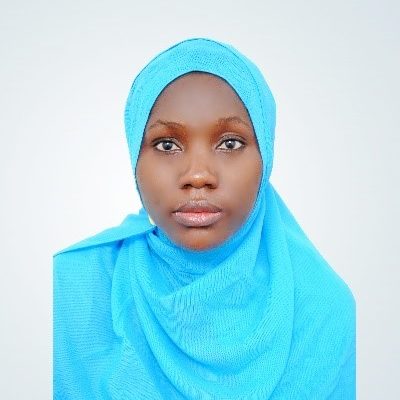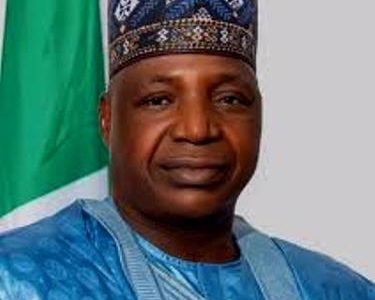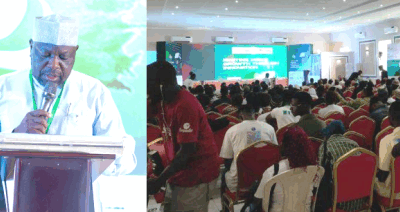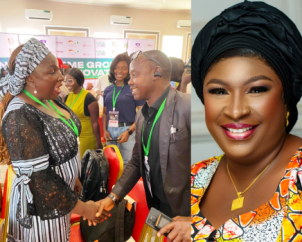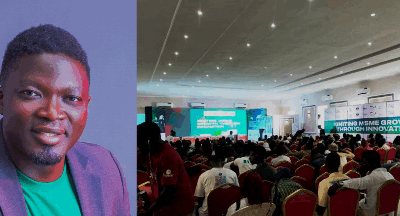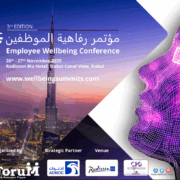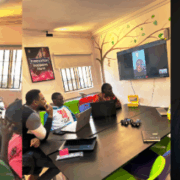Rahimat Oyiza Yakubu is a graduating Ph.D. student in Engineering Sciences and Technology, Kwame Nkrumah University of Science and Technology (KNUST). A strong advocate of clean energy, she has done extensive works on sustainable energy technologies and was honoured this year at the 14th edition of the L’Oréal-UNESCO for Women in Science Young Talents Sub-Saharan Africa Awards. A scholar, wife and mother, Yakubu comes from northern Nigeria where the girl child education is abysmally low. Her achievement is both iconic and inspiring for millions of young people in a continent where millions are out of schools. Her research works focus on creating access to clean electricity within health and learning centres. Her recognition by the Fondation L’Oréal and UNESCO is seeking to “reinforce their commitment to promote gender equality in science.”
Congratulations for being one of the 30 Winners of the 2023 L’Oréal-UNESCO For Women in Science Young Talents Award – Sub-Saharan Africa – You were nominated for your work on ‘Advancing clean energy in Nigeria’s universities and hospitals,’ what does this award mean to you?
I am from the northern part of Nigeria where the education of a girl child is quite low. I feel this is an opportunity for them also to see that they can have someone out there who they can look after as a role model, and this can motivate them to also take up interest in STEM [Science, technology, engineering, and mathematics].
RELATED: Fondation L’Oréal and UNESCO honour 30 African women scientists
Your response moved straight into my next question. How do you think your recognition can encourage more girls into STEM from the part of Nigeria where you come from, where the literacy level is very low for the girl child; what does government and communities need to do to get the girl child more involved in STEM?
For me getting to this position is all about family support. I have that support from my mom and my brother. Getting married, I was also lucky to also find a man that felt like access to education for a girl-child is very vital and it helps. Women are more attuned to societal challenges and if you educate a woman, you have educated the whole world. It is like me being here today. Indeed, when you educate a girl child the sky is their limit, if not even going above the sky. So, I feel a strong connection between me here, a girl-child coming out from the northern part of Nigeria; this is a motivation for them to see that if they actually take their education seriously, they can go as far as I have done if not even better than me. For our government, I believe that the government still needs to create that awareness within the northern part of our country and the entire country. We need the girl child education if not for anything I would like to give you a little story of why I decided to study renewable energy technologies including solar and and basically focusing on how clean energy could be advanced in Nigeria’s universities and hospitals.
This is because I gave birth in a government hospital without access to electricity in the middle of the night and having studied Electrical and Computer Engineering, I decided to see how I can go for my PHD in sustainable energy and be able to advocate for a decentralized energy if not for the entire community, at least, for schools and hospital where access to electricity should be 24/7. I was not the only one who gave birth that same night, there were many women who gave birth in similar circumstances across Africa with a high mortality rate lack of where access to electricity is a challenge and a contributing factor to that high mortality rate.
Your story is quite inspiring. When you look at your research work and background, is there a possibility that Africa might look in the direction of clean energy; is the Nigerian government likely going to adopt research works like yours to put investment and willpower in that effort towards clean energy?
According to statistics, over 600 million people in sub-Saharan Africa are still without access to electricity and taking Nigeria as a country for example, I think access to electricity is about 59.5 percent of over the 220 million population we have. This means about 40%, which is about 89 million people, are without access to electricity. The United Nation has estimated that with the poor or weak infrastructure, it would take about 50 years for the rural areas to have access to electricity so the only option we have is the use of clean energy whereby each community can be able to generate their electricity within that community. I think that is where my research comes in, and with the Nigerian government, they have been able to establish an agency known as Rural Electrification Agency [REA] that is advocating for access to electricity in rural areas. I believe with this agency my position is to be able to bring out my work and make a lot of advocacy for the use of solar PVC and not just solar PVC as we also have other renewable energy technologies such as biomass. So, my position is to go back home and see how in my little way I can promote the use of solar PVC, stems and other renewable systems.
“[This award] is like a validation for me that the work I am actually doing out there means something and can be for a greater cause. It also makes me feel that indeed I have that intellectual capacity to be able to contribute to the greater good for Africa just like men.”
Do you think this recognition can help government agencies like the REA to look at your work and implement their mandate for access to electricity through renewable energy?
I want to believe so. If I must digress a little, I have this work I published two months back about Bui Power Authority in Ghana, and recently they reached back to me because they have a grid connected system, a solar PVC grid connected system from which I collected their data and I made some analysis and I published that analysis. They contacted me recently appreciating my work and how they have been able to implement some of my recommendations and so I want to believe that the Nigerian government can also adopt that as well, and promote some of the works that I have done.
How do you feel as a woman and as a researcher to be honoured in events like this?
I’ll start again by my belief, which is I believe that for us to tackle societal challenges women have to be involved and for me to be able to go this far it’s like a validation for me that the work I am actually doing out there means something and can be for a greater cause. It also makes me feel that indeed I have that intellectual capacity to be able to contribute to the greater good for Africa just like men. I feel this can promote the girl child education, and of course there are talents from various parts of Africa and from every region. This event is recognizing African women scientists and I’m sure there is nobody, whether man or woman from each of those regions that will not be happy that they are being represented for a good cause, This will go in a long way to motivate some other persons, even if it is one person out there that will want to also support the girl child education to see how far they can go and what are those good contributions they can make to the world.
Courtesy: Baobab Africa Reports

